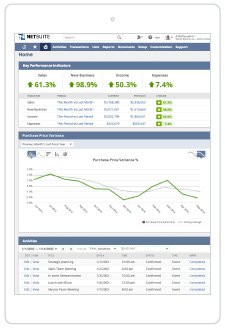SAP
Run Your Global Business
While Thriving in the Hybrid Cloud
The #1 Cloud ERP Solution
Run Your Subsidiaries with Cloud ERP While Preserving your Headquarter SAP Investments
Your SAP ERP system has been serving you well as your company grew organically. But, now you are expanding your business globally. Your company is growing with new subsidiaries, new acquisitions and new global markets. You need to integrate these new entities with your corporate ERP—but can you do so rapidly and affordably, and achieve the real-time global visibility and efficiency that your business demands?
The answer is a two-tier ERP model powered by NetSuite. The two-tier model lets you preserve your on-premise ERP investments in SAP or other systems, while equipping global subsidiaries with a more agile, flexible cloud-based ERP/financials system and giving headquarters the real-time visibility it needs.

Benefits
Timely Information and Insight
Improve business performance with real-time metrics and role-based dashboards.
Close with Confidence
Accelerate the financial close while maintaining compliance with applicable accounting standards.
Streamline the Back Office
Eliminate errors with seamless integration between financials, CRM and ecommerce.
Report with Accuracy
Drill down into the underlying details to understand the impact on your business.
































